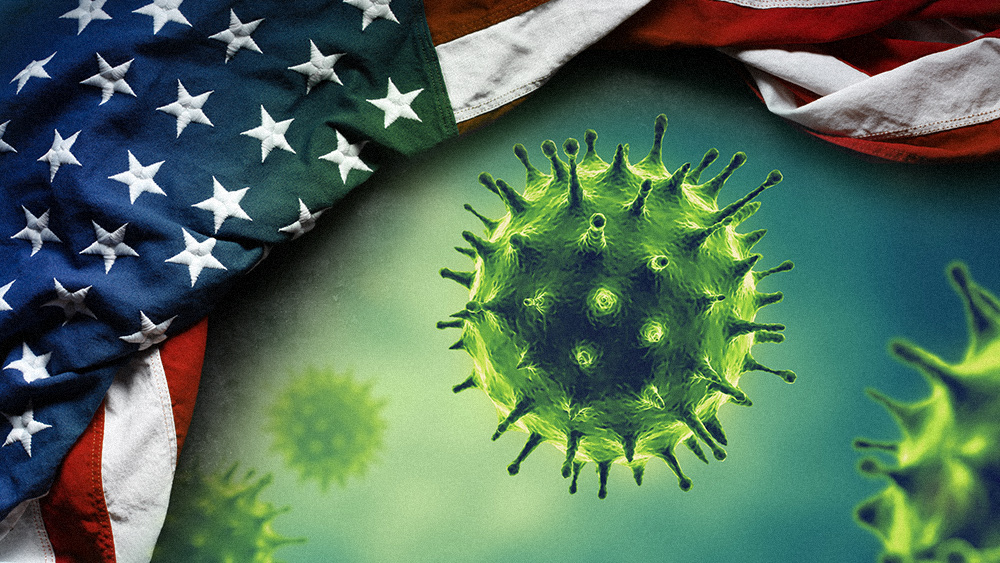Wet-dog smell, tobacco smoke and skunk spray: Various factors affect how long an unpleasant scent lingers, explain researchers
02/13/2020 / By Arsenio Toledo

The human nose can distinguish at least one trillion different scents. Many of these smells will come and go fairly quickly. However, others, such as disgusting smells, don’t disappear fast enough.
The brain recognizes smells with the help of special sensory cells known as olfactory receptor neurons that are located inside the nose. Once they receive a smell in the form of a gas molecule, they send different signals to the brain. According to Christopher Cramer, researcher and professor in the University of Minnesota‘s Department of Chemistry, these olfactory receptors are able to “recognize” different gas molecules based on their shape and the configuration of atoms on their surfaces. Because of this recognition, the brain is able to distinguish between pleasant smells and other scents that can trigger disgust thanks to certain chemical cues.
Cramer further mentioned that there’s a “lock-and-key level of specificity” to the receptors. Some of the receptors can be very specific and only activate when certain triggers are found, while other receptors can be activated more easily.
The smells linger for different reasons
As to why certain awful smells still linger on, Cramer and many other researchers believe it depends on the smell. Here are three examples of repulsive smells and why they tend to stick around:
- Wet-dog smell: According to British chemistry teacher Andy Brunning, the smell of a wet-dog comes from microorganisms that reside in their fur. These microbes create compounds that smell revolting to humans. When the dog’s fur gets wet, the microbes get detached and they can sometimes carry with them volatile compounds that can reach the nose when the water carrying them evaporates. Furthermore, as the water containing these microbes evaporates, it also increases the humidity of the air around the dog. This humid air is able to accommodate more smelly molecules, further intensifying the scent. (Related: Humans’ sense of smell is actually just as strong as dogs, but people dull their senses with carcinogenic artificial fragrance.)
- Tobacco smoke: When a cigarette is burned, thousands of chemicals are produced by both the tobacco leaves and the additives in the cigarette. When the smoke dissipates, these chemicals get left behind. They can land on different surfaces, such as clothing, carpets and other pieces of furniture. According to the Mayo Clinic, this “third-hand smoke” is also a cause for concern, as the chemicals left behind can still cause health problems.
- Skunk spray: The odor released by skunks in self-defense is well researched. The chemicals in the spray are known as thiols. They are similar in nature to alcohol, only they have an extra sulfur atom. Thiols are responsible for the incredibly stinky spray. According to William Wood, researcher and professor emeritus of organic chemistry and chemical ecology at Humboldt State University, the compounds in a skunk’s spray don’t disappear quickly. Instead, they release over time. This can make anything a skunk sprays – a person, thing or animal – stink for days or even weeks after being hit.
Other factors also play a contributing role in whether pungent aromas will linger. A person’s sensitivity to certain smells is also unique to them. For example, the smell of a wet dog may not trigger one person’s smell receptors, but it may make another person shy away in disgust.
The material that comes into contact with the smelly gasses can also affect how long an aroma stays. Porous materials such as hair and textiles “can significantly reduce the volatility of molecules that enter into those pores and find them very comfortable places to occupy,” said Cramer.
There is a solution. Cramer notes that many of these smelly gasses are averse to water. Exposure to water molecules will reduce the volatility of many aromas. However, just because they’ve become less volatile doesn’t mean that the smell will disappear quickly. “Lower volatility doesn’t mean no smell, it means less smell and longer for that smell to go away,” said Cramer in an email interview. “So, if you’re really sensitive to that smell, you’re going to be stuck with it for a long time.”
Sources include:
Tagged Under: Chemistry, cigarette smoke, discoveries, foul odors, nose, olfactory receptors, olfactory senses, research, Scents, sense of smell, skunk, skunk spray, tobacco smoke, weird science, wet dog smell




















